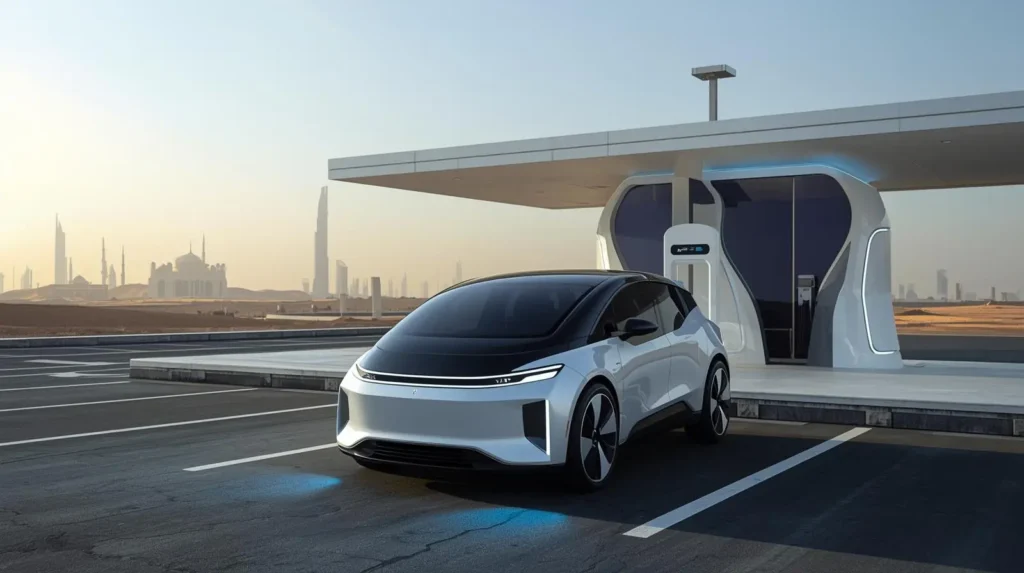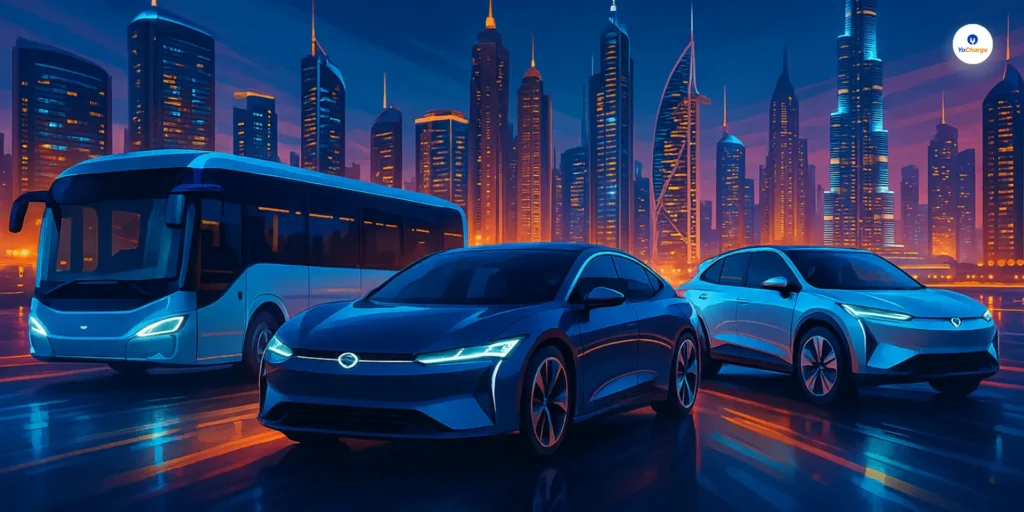The e-mobility market is still in its early stages, but it is growing rapidly. The number of electric cars on the road is increasing every year, and the infrastructure to support them is also expanding. There are now more charging stations and public policies in place to encourage the use of electric vehicles. The market for electric vehicles is still small compared to the overall automotive market, but it is growing rapidly.
According to sources, In 2018, sales of electric vehicles reached a record 2 million units globally, an increase of 54% from the previous year. The United States, China, and Europe are the three largest markets for electric vehicles, accounting for more than 70% of global sales. The growth of the electric vehicle market is being driven by a number of factors, including advances in technology, increasing concerns about air pollution and climate change, and government incentives.
One of the major advantages of electric vehicles is their low carbon footprint. Electric vehicles emit fewer pollutants than traditional internal combustion engines. As a result, the use of electric vehicles can help reduce air pollution, which is a major problem in many cities around the world. This reduction in air pollution can have significant health benefits, particularly for people with respiratory conditions.
The benefits of electric vehicles are many and varied, but one of the most important is the role that they can play in improving energy management. Electric vehicles are much more efficient than petrol or diesel vehicles, meaning that they use less energy overall. This is good for the environment, as it reduces emissions, but it also has the potential to save money.
Technology is improving rapidly, making electric vehicles more affordable and practical for consumers. The range of electric vehicles is increasing, with many models now able to travel more than 200 miles on a single charge. Prices are also falling, with the cost of electric vehicles expected to continue to decline as technology improves. Concerns about air pollution and climate change are leading more people to consider electric vehicles as an alternative.
Importance of smart energy management
The importance of smart energy management in the e-mobility market is becoming increasingly evident. Smart energy management is a system that helps control energy use. It can include things like energy-efficient appliances, solar panels, and wind turbines. It can also help save money on energy bills.
Smart energy management is also a process of using data and technology to understand and optimize how electric vehicles use energy. This can involve understanding and managing vehicle charging, discharging, and idling patterns to minimize energy use and maximize efficiency.
Electric vehicles also have the ability to store energy, which can be used to power other devices or to help stabilize the electricity grid. This is an important contribution to smart energy management, as it helps to even out peaks and troughs in demand.
Finally, electric vehicles are often equipped with advanced technology that can be used to monitor and manage energy usage. This data can be used to improve the efficiency of the vehicles, and to help develop new and improved energy management strategies.
The mobility market is growing rapidly, and the importance of smart energy management is becoming more and more important. Smart energy management can help reduce emissions and improve the efficiency of the transportation system. This, in turn, can help reduce energy costs and improve the overall quality of life. Investing in smart energy management technologies and infrastructure can prove to be fruitful for governments, companies, and consumers alike.
In conclusion, as the e-mobility market continues to grow, the importance of smart energy management will only continue to increase. As technology advances, there will be more opportunities to optimize energy use and reduce emissions. This will not only be good for the environment but will also help to create a more sustainable transportation system for the future.



